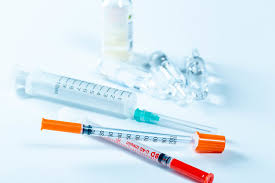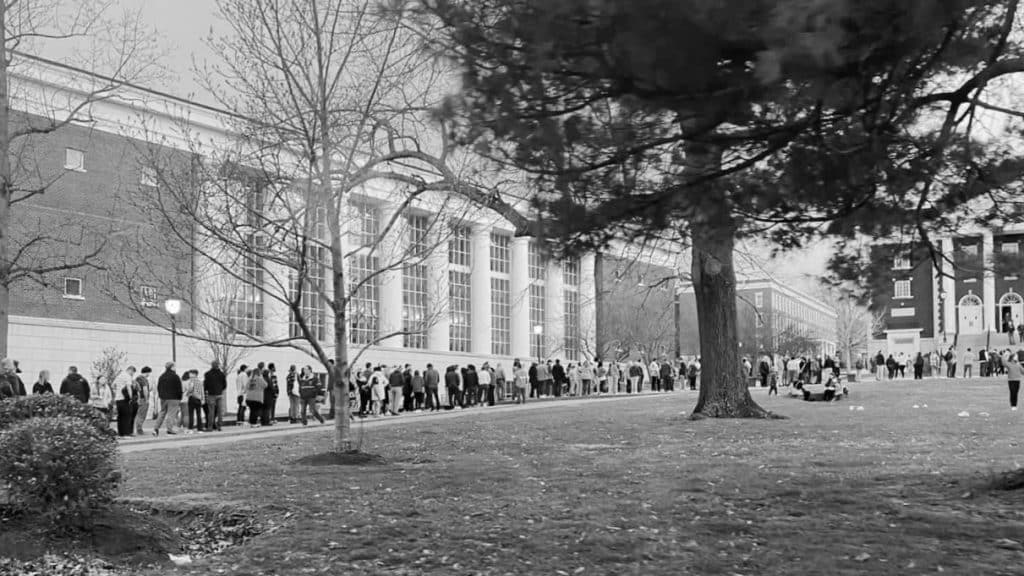Kayla Davis. Meaghan Carter. Antavia Lee Worsham. All real people, from places throughout
the U.S., who have at least one thing in common — they all died because they ran out of insulin.
November is Diabetes Awareness Month. One thing the public needs to be made aware of is that
insulin is not like other medicine. It’s a hormone that naturally controls blood sugar levels
through the pancreas. Type 1 diabetics, like myself and the people above, are unable to produce
insulin and have to buy a man-made version in clear, small vials at a pharmacy.
Meaghan Carter, who lived in Ohio, had to pay over $800 a month; Antavia Lee Worsham, also
from Ohio, spent around $1,000 on insulin and supplies — and because that amount of money is
not easy for some to come up with, these women paid the ultimate price after having to ration
their medicine.
Insulin was first invented in 1921 by Frederick Banting and Charles Best (with the assistance of
James Collip) and was deemed a miracle. Before their discovery, getting diagnosed with diabetes
was a death sentence.
Banting sold the insulin patent to the University of Toronto for a mere dollar, without his name
written on it. He wanted the miracle drug to expand worldwide. To him, it was unethical to make
profit from a medicine that could save lives.
“Insulin does not belong to me,” said Banting. “It belongs to the world.”
If Banting saw the prices for a single vial now in a pharmacy, which is around $300, he would be
shocked and disgusted.
Insulin is not a normal drug. It cannot be sold generically, as of now, because it is what Colorado
State University postdoctoral researcher Jenna E. Gallagos calls biologic. This means that it is
not created from a simple chemical reaction; it undergoes a long process called biomanufacturing
before being put to the test in expensive clinical trials. These regulations assure doctors and
patients that the insulin will do its job safely.
However, what is the point of making insulin if Type 1 diabetics, who need the drug to survive,
cannot even afford it?
Ten percent of people living with diabetes are uninsured, which automatically raises the price for
any medicine. They are sacrificing everything in order to purchase the drug, including Laura
Marston, 36, of Virginia, who feared the worst when she became uninsured after losing her job.
“I was spending $2,880 a month just to keep myself alive — that was more than I was making
even working 50 hours a week,” Marston told BBC this past March. “I sold everything, including
my car, and had to give up my dog — he was eight and I had to give him away — and move to
D.C.”
Insulin is a necessity for Type 1 diabetics. Rationing it only damages the human body until
diabetic ketoacidosis, which occurs when there is an excess amount of blood acids (ketones).
This, unfortunately, was the case for Kayla Davis, 28, of Owensboro, Kentucky, who was forced
to ration her insulin while waiting for insurance approval. She died a week later.
In 2017 and 2018, there were at least six deaths caused by rationing insulin in the United States
and already in 2019, there have been four.
Between 2007 and 2016, the American Diabetes Association (ADA) and the University of
Southern California Center for Health Policy and Economics reported an increase in major brand
insulin list prices of 252%.
A common response to the problem is telling diabetics simply to switch to a cheaper brand, such
as the one offered by WalMart. However, the various types of insulin react differently per
person. The WalMart brand is a knock-off of Novo Nordisk, which is older and less effective;
some diabetics like Marston are even allergic to it. Switching brands sometimes only leads to
more damage.
Protests and marches have sporadically occurred as an important first step of awareness, but
more still needs to be done. The Affordable Drug Manufacturing Act, proposed by Sen.
Elizabeth Warren (D-Mass.) and Rep. Jan Schakowsky (D-Ill.) last December, could have
lowered the cost for millions, but the bill was denied in Congress.
However, hope is not gone. This proposal, along with others from presidential candidates,
including Sen. Bernie Sanders (Vt.), show we are headed in the right direction.
The key is to continue fighting for our right to survive; insulin is not a want, it is a desperate
need. Marston and the families of those mentioned above are all advocating for a solution to the
present crisis.
“If even one person has to pay list price, that’s not fair,” said Marston. “It’s really someone
having a gun to your head and saying: ‘Your moneyor your life.’”









